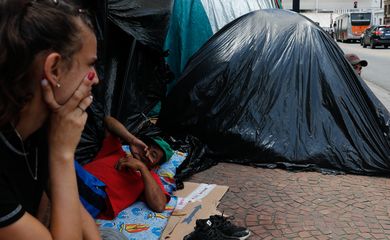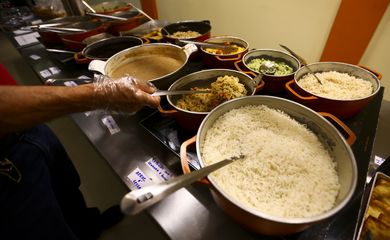Hunger plagues half of residents in Rio favela complex

A survey of 8,700 residents of Complexo do Alemão—a group of favelas in the north of Rio de Janeiro city—shows that 53 percent of them faced severe food insecurity at some point between 2020 and 2022. The study was carried out by the Brazilian Institute for Social and Economic Analysis (Ibase) and released this week.

The figures also revealed that 83 percent of families with children up to six years old in the favela complex have experienced moderate or severe food insecurity in the last three years.
According to the Brazilian Research Network on Food and Nutrition Sovereignty and Security (Penssan), severe food insecurity occurs when a person feels hungry and does not eat due to lack of money to buy food, eats only one meal a day, or does not eat all day.
Moderate food insecurity occurs when there is a reduction in the amount of food available, or a disruption in eating patterns due to a shortage of food.
Eleven percent of the families reported their children had already gone a whole day without eating because there was no money to buy food. Sociologist Joice Lima, a researcher at the institute and a former resident of Complexo do Alemão, noted that the COVID-19 pandemic has played a decisive role in worsening food insecurity.
“The public policies aimed at minimizing the impacts of the lockdown period were not enough to meet families’ basic food rights. Many did not even have access to these policies, or the amount they received was not enough,” she pointed out.
Without the money to buy enough to eat, 40 percent of adults said they had to reduce their meals or skip them to avoid running out.
In 68.3 percent of households, another strategy adopted to avoid shortages was to buy low-cost food so as not to stop feeding their children up to the age of six.
“If the child is already going hungry, it’s because the family hasn’t found alternatives to meet this need. The family is unable to procure food, or to have the income to buy food,” she went on to say.







